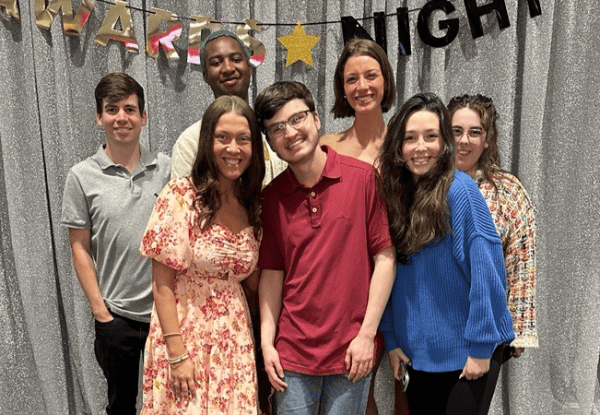It’s never too late to join a student organization
September 21, 2022
Following this semester’s Get On Board Day on Aug. 30, it is important to remind students of the benefits associated with joining a student organization. Especially for first- and second-year students, Get On Board Day represents a wide range of opportunities for students to take initiative and carve out a space for their own interests.
But Get On Board Day is not the end-all-be-all for joining student organizations. In fact, most organizations will always have more room for students looking to fill the time they spend outside of lecture halls.
It is within student organizations that the social dimension of education comes into play, where peers who share a common passion can communicate among each other and find themselves.
Rebecca Mhagama, a senior studying public health and president of Leftist Collective, knows all about the importance of student organizations and how they can positively impact students.
“I think Alabama is a great university for students to be able to find their group because we have so many organizations on campus. They’re not just political, different social boards, even ones to deal with your major and stuff like that,” Mhagama said. “It’s a very large institution, which comes with the benefits of having so many options to choose from as far as finding your niche.”
With such a wide catalog of different student organizations with diverse interests, selecting one can prove challenging.
For students anxious about committing more time to a student organization, stick to the fundamentals. Consider these three principles: enjoyment, fulfillment and career advancement.
Organizations with interests you enjoy may take the form of a club dedicated to gaming, athletics or some other activity that generates a social atmosphere based on having fun and enjoying your time.
A sense of fulfillment will typically be found in organizations on a mission. Political, activist-minded and volunteer-based organizations help develop character and provide a space for students to engage with a cause that fits them.
Career-advancing organizations are the ones that will help familiarize students with the field of work they expect to transition into upon graduation.
For those students who are pursuing a pre-law route, there exists the Legal Research Club and the Pre-Law Student Association. There is the Metallurgical and Materials Engineering Student Chapter or Alabama Rocketry Association for students interested in engineering. The list goes on for every career path.
All these organizations are listed on mySource, where information is posted regarding how to reach out and become a part of each club.
But for those who are not entirely confident about what they want their college experience to mean or what their career plans are, do not worry. University life is also about taking the time to discover yourself while learning about your talents, strengths and weaknesses.
“Sometimes the organizations serve as a jumping point for you to create your own ideologies and figure out who you are outside of the comfort of your own home and your own biases that you got from where you came from. It’s kind of like you get to create your own identity — in a weird way,” Mhagama said.
Attending such a massive institution can be intimidating. Still, the first lesson any student should learn about college life is that, like the 1998 pop hit from The Radicals states, “you get what you give,” and there is no better way to give than through a student organization.










